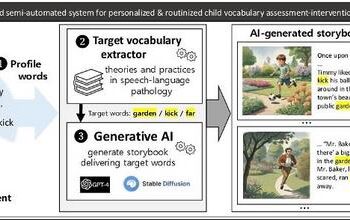FOR IMMEDIATE RELEASE
FOR IMMEDIATE RELEASE
Monday, June 3, 2024
Contact:
Jillian McKoy, jpmckoy@bu.edu
Michael Saunders, msaunder@bu.edu
##
Researchers: Excluding Partisanship Questions from Public Health Surveys ‘Limits Our Capacity for Advancing Population Health and Health Equity’
A new commentary in the American Journal of Public Health urges public health researchers to incorporate questions about partisan identity in demographic data collection, arguing that excluding this information could lead to ineffective policy and health promotion interventions.
The partisan divide in attitudes toward vaccination and masking during the COVID-19 pandemic made clear that the ever-rising polarization in America extends far beyond electoral politics, with stark consequences for health.
Despite these consequences—which include partisan differences in a range of health behaviors and health outcomes—none of the publicly available surveys conducted by federal agencies or other nationwide assessments measure partisanship.
Excluding partisanship questions in health surveys is detrimental to health, and public health researchers in the US should indeed inquire about political party identification when collecting demographic data, according to a new commentary published in the American Journal of Public Health.
“The COVID-19 pandemic has taught us that not attending to political differences in acceptance of and trust in particular health interventions or in public health authority writ large has important consequences for population health,” write Dr. Juliana Pacheco, professor in the Department of Political Science at the University of Iowa; Dr. Sarah Gollust, professor in the Division of Health Policy & Management at the University of Minnesota; Dr. Timothy Callaghan, associate professor of health law, policy & management at Boston University School of Public Health (BUSPH); and Dr. Matt Motta, assistant professor of health law, policy & management at BUSPH.
Omitting party identification from most public health research could limit scientific advancement in the field and hinder health improvements that could be achieved with insight on how partisanship shapes health behaviors and attitudes, the authors write. Thus, they recommend that “public health researchers designing survey-based studies and agencies distributing national or state-level surveys include questions about partisan identity in their research.”
“By including partisanship in more public health surveys, we will be able to better track how partisanship is impacting individual health attitudes and behaviors,” says Dr. Callaghan. “In doing so, we will be better able to monitor the political determinants of health and to develop successful interventions to improve public health that appropriately account for how partisanship is shaping individual behavior.”
Importantly, the commentary identifies the factors that are driving partisanship in America and explains the ramifications of not documenting or understanding these differences.
For example, neglecting to gather data on partisan identity may prevent health providers from developing tailored communication or treatment plans for their patients, and it could also prevent health advocates and officials from crafting effective public health messaging that bridges political divides and resonates with the broader public.
“Effective health communication makes an effort to meet people where they are,” says Dr. Motta. “For example, previous research—including our own—finds that self-identified Republicans, who tend to be more vaccine-skeptical than Democrats, are more likely to vaccinate against COVID-19 when the vaccine is endorsed as safe and effective by prominent Republican politicians.
“Unfortunately, it’s difficult to ‘meet people where they are’ if we don’t know where they are,” he says. “Measuring partisan identity in public opinion surveys allows us to figure out why some people are more likely than others to reject evidence-based health behavior, and develop effective health promotion strategies.”
Failing to measure partisanship also contributes to what the authors call “fallacious ecological inference,” or the idea that research connecting partisanship and health at the aggregate level—the primary way this information is currently studied—does not capture individual-level partisan identity and its influence on personal health decision-making and beliefs.
“Aggregating partisan differences in health attitudes and behavior at the state or county level may overlook important nuances in how individual partisans think and act,” says Dr. Motta. “We can’t credibly assume that differences in how Massachusetts Democrats or Republicans think about public health ‘stands in’ for how individuals make important decisions related to their own health, or the health of their loved ones.”
The commentary also notes that including partisanship in research does not compromise the data with subjectivity or bias—a conclusion backed by data.
“Some public health researchers have hesitated to include measures of partisanship in their studies out of fear that it might make their research partisan,” Dr. Callaghan says. “We disagree vociferously with this idea. Asking about partisanship is not itself a partisan task and instead helps to ensure that you are properly accounting for the role of partisanship in shaping health attitudes and behaviors. Partisanship is a critical determinant of health and we hope that with advocacy like our commentary, we can help push the field towards studying and working to overcome partisanship’s influence on public health.”
**
About Boston University School of Public Health
Founded in 1976, Boston University School of Public Health is one of the top ten ranked schools of public health in the world. It offers master’s- and doctoral-level education in public health. The faculty in six departments conduct policy-changing public health research around the world, with the mission of improving the health of populations—especially the disadvantaged, underserved, and vulnerable—locally and globally.
Journal
American Journal of Public Health
Method of Research
Commentary/editorial
Subject of Research
People
Article Title
A Call for Measuring Partisanship in US Public Health Research
Article Publication Date
16-May-2024
Discover more from Science
Subscribe to get the latest posts sent to your email.



